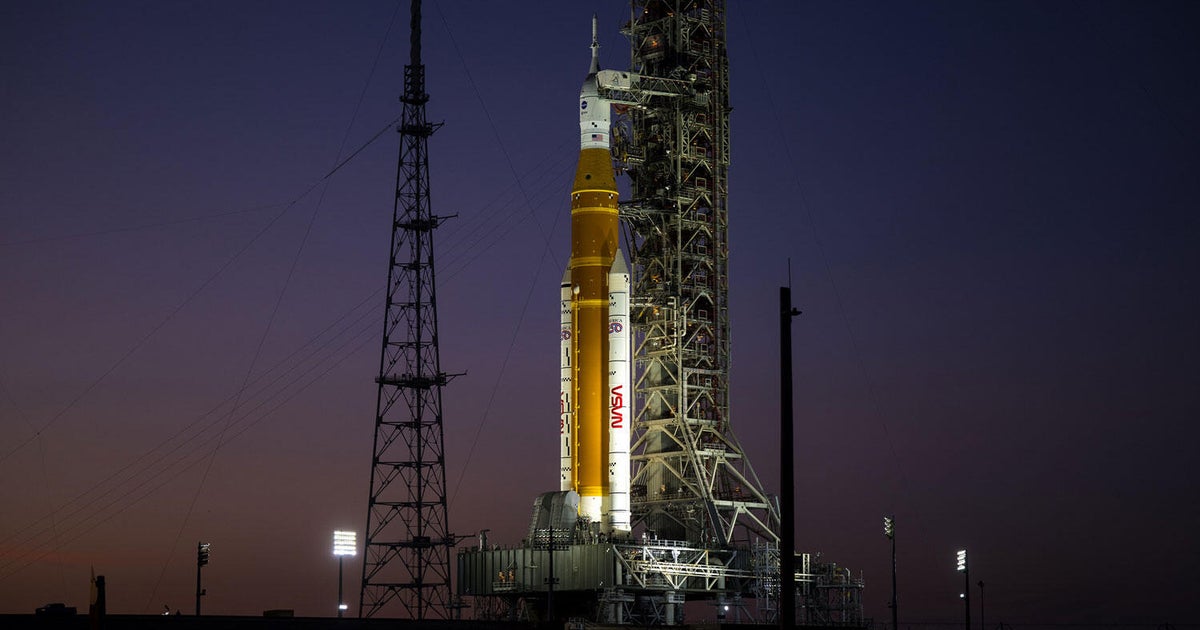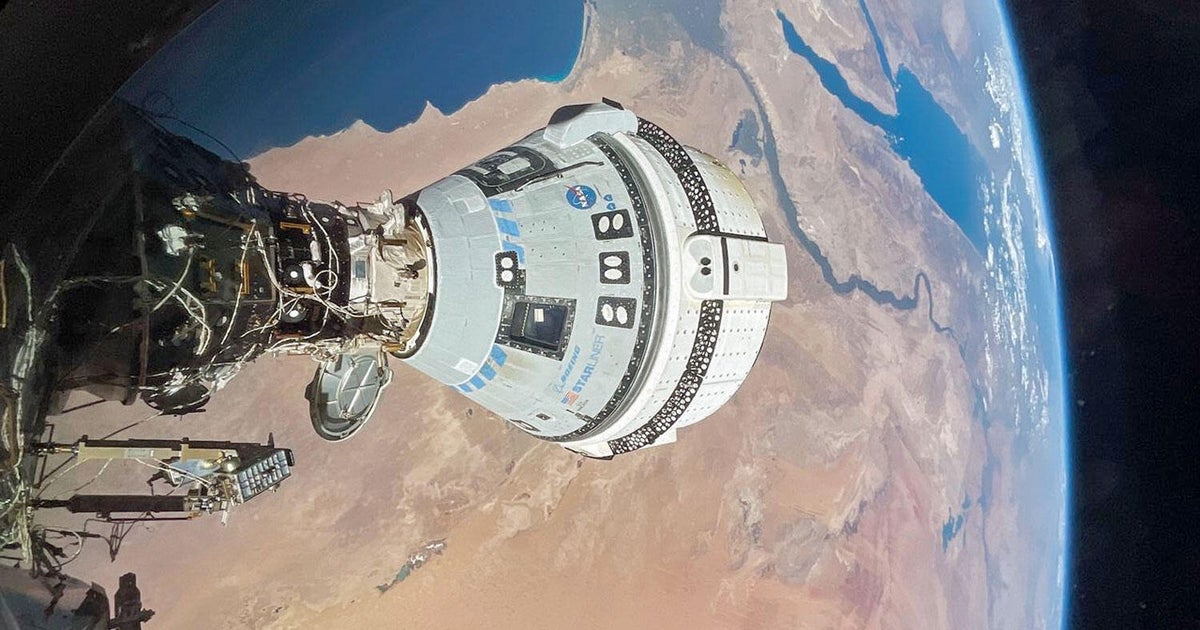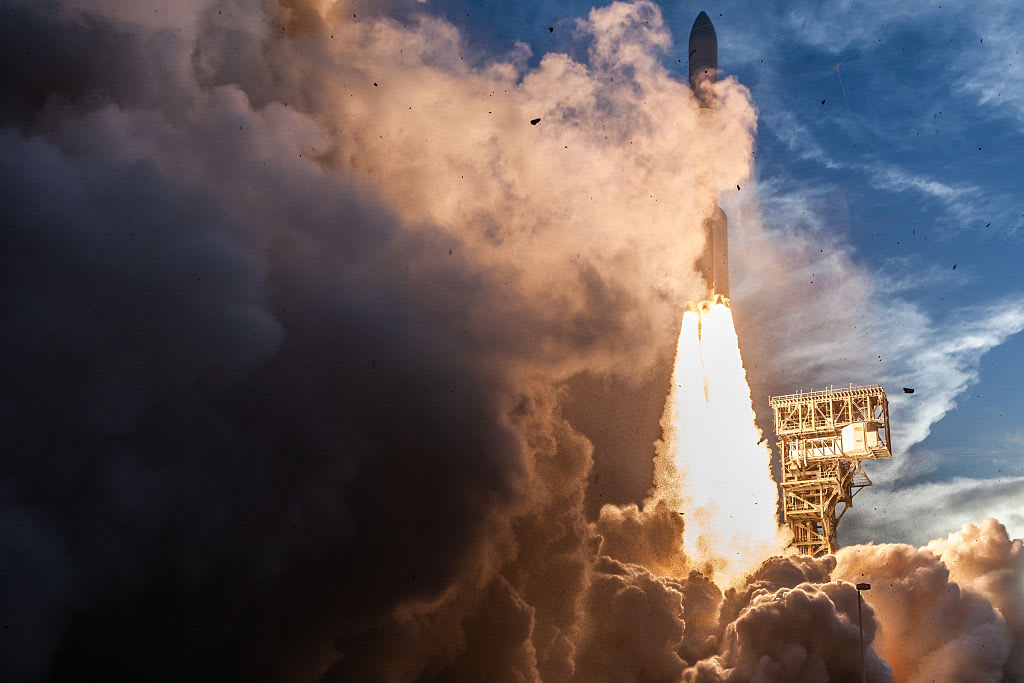SpaceX launches Northrop Grumman cargo ship to space station
SpaceX launched its third flight in less than three days Tuesday, firing off a Falcon 9 rocket from Florida carrying more than four tons of science gear, equipment and crew supplies, including ice cream, fresh fruit and cheese, on a two-day flight to the International Space Station.
The Falcon 9, using a first stage booster making its 10th flight, thundered to life at 12:07 p.m. EST, throttled up and climbed away from pad 40 at the Cape Canaveral Space Force Station.
After propelling the rocket out of the lower atmosphere, the first stage separated, flipped around and flew itself back to landing at the Space Force station while the second stage continued the climb to orbit. It was SpaceX's 44th landing in Florida and its 269th successful booster recovery overall
Fourteen minutes after liftoff, Northrop Grumman's Cygnus cargo ship was released to fly on its own. If all goes well, it will catch up with the space station early Thursday and then stand by while the lab's robot arm locks on and pulls it in for berthing.
The launching followed two SpaceX flights less than five hours apart on Sunday and Monday, one from the Kennedy Space Center and the other from Vandenberg Space Force Base in California. The two Falcon 9s boosted a combined 45 Starlink internet satellites into orbit, pushing the total launched to date to 5,806.
Tuesday's flight, SpaceX's 10th so far this year, was the first carrying a Northrop Grumman Cygnus cargo ship for NASA.
The space agency relies on SpaceX Falcon 9s and Northrop Grumman's Antares rockets to deliver supplies to the space station. But in the wake of Russia's invasion of Ukraine, Northrop Grumman is replacing its Antares 200-series rockets, equipped with a Ukrainian-built first stage powered by Russian engines, with a new all-American version.
Tuesday's flight, Northrop Grumman's 20th space station resupply mission, was the first of three aboard SpaceX's workhorse Falcon 9 while the company presses ahead with development of the new Antares 300-series rocket. .
Packed aboard the latest Cygnus are more than 8,200 pounds of cargo, including 2,490 pounds of crew supplies, 3,017 pounds of science equipment, 2,493 pounds of space station hardware and about 185 pounds of computer gear and spacewalk equipment.
"The different types of science that we're supporting here include areas of human research, technology demonstrations, fundamental science and Earth-based observations from a lot of our external hardware," said Meghan Everett, ISS deputy program scientist.
"We have investigators from our NASA programs. We've got our international partners, the European Space Agency and the Japanese space agency, and a lot of great science coming from our ISS national labs."
Among the technology demonstrations is a 3D metal printer to provide insights into "some of the structural differences between printing things in space and printing these on Earth," Everett said.
"The reason we're doing this is because when we talk about having vehicles in space for a longer period of time without being able to bring supplies up and down, we need to be able to print some of these smaller parts in space to help the integrity of the vehicle over time."
Among the crew supplies: a variety of fresh food and frozen treats for the lab's long-duration crew members.
"We'll have a fresh food kit, things like apples and citrus, as well as a bunch of cheese," said Dina Contella, the ISS operations and integration manager at the Johnson Space Center. "We've got hazelnut spread, coffee, hummus and then lots of ice cream."
"Don't tell the crew," she joked, "some of that's a surprise."






